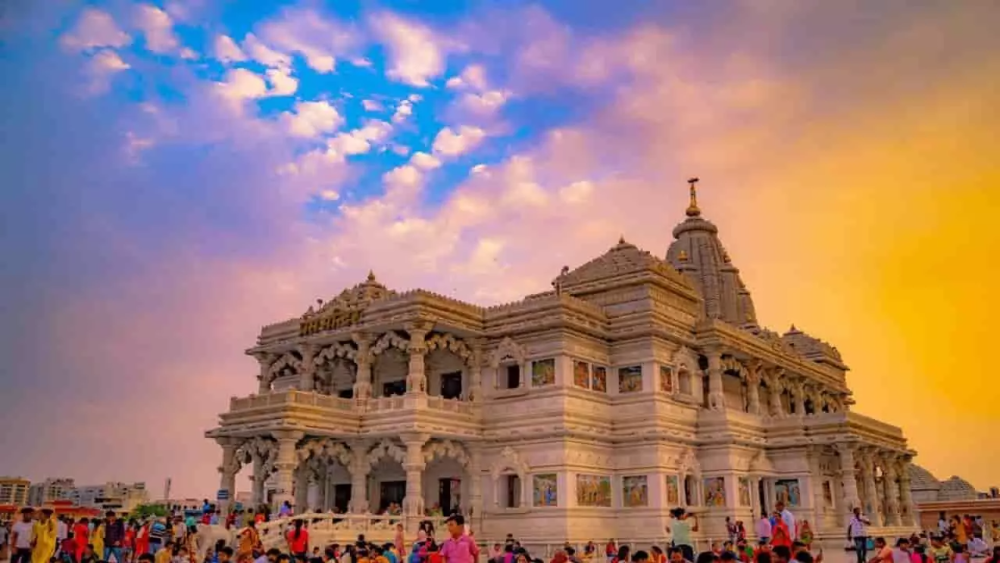

Mathura, located in the northern state of Uttar Pradesh in India, is a revered city with a history steeped in religious significance and cultural heritage. It is widely known as the birthplace of Lord Krishna, a pivotal figure in Hindu mythology and the protagonist of the epic Mahabharata. This ancient city has been an important pilgrimage destination for centuries, attracting devotees and tourists alike.
The history of tourism in Mathura can be traced back to ancient times when it was first mentioned as the center of Krishna-worship in various Hindu scriptures. The earliest references to pilgrimages in Mathura are found in texts like the Puranas and the Mahabharata, which date back to between 5th and 4th century BCE. The significance of Mathura as a sacred place for religious tourism is inseparably linked to its identity as Krishna's janmabhoomi or birthplace.
Besides Hinduism, Mathura also gained prominence as a major religious center for Buddhism and Jainism. During the Mauryan Empire, under the reign of Emperor Ashoka in the 3rd century BCE, Buddhism flourished in Mathura, as evidenced by the archaeological findings of inscriptions and stupas. The influence of Jainism, dating back to the same era, carries forward with numerous Jain temples present in the vicinity.
Despite facing destruction and desecration during the medieval period at the hands of Mughal invaders, Mathura managed to maintain its religious significance. The resurgence of Hindu culture during this time saw the restoration and construction of several notable temples.
During British colonization, Mathura evolved into a modern city but continued to attract pilgrims. With the advent of the railways in the 19th century, the city became even more accessible to a broader spectrum of visitors, further bolstering religious tourism.
In contemporary times, Mathura has witnessed a sustained upsurge in religious tourism, especially during festive celebrations such as Janmashtami (the birthday of Lord Krishna), Holi, and other local festivals. The city has seen significant growth in infrastructural development with better roads, railways, and accommodations to facilitate the influx of tourists.
Moreover, the concept of heritage tourism is gaining traction in Mathura. Visitors are not only interested in temples and religious sites but also keen on the exploration of ancient ghats, historic structures, and the Yamuna riverfront. The local government and tourism boards are working to preserve these historical sites and promote sustainable tourism practices to maintain the city's cultural integrity.
An emerging trend in Mathura's tourism sector is the integration of spiritual wellness into the visitor experience. This includes yoga retreats and meditation programs that utilize the serene and spiritual atmosphere of Mathura to attract a global audience interested in health and spirituality.
In conclusion, Mathura's history as a center for tourism is deeply entrenched in its religious and cultural roots. Today, it continues to evolve by embracing new trends in travel and hospitality while preserving the sanctity of its ancient traditions.